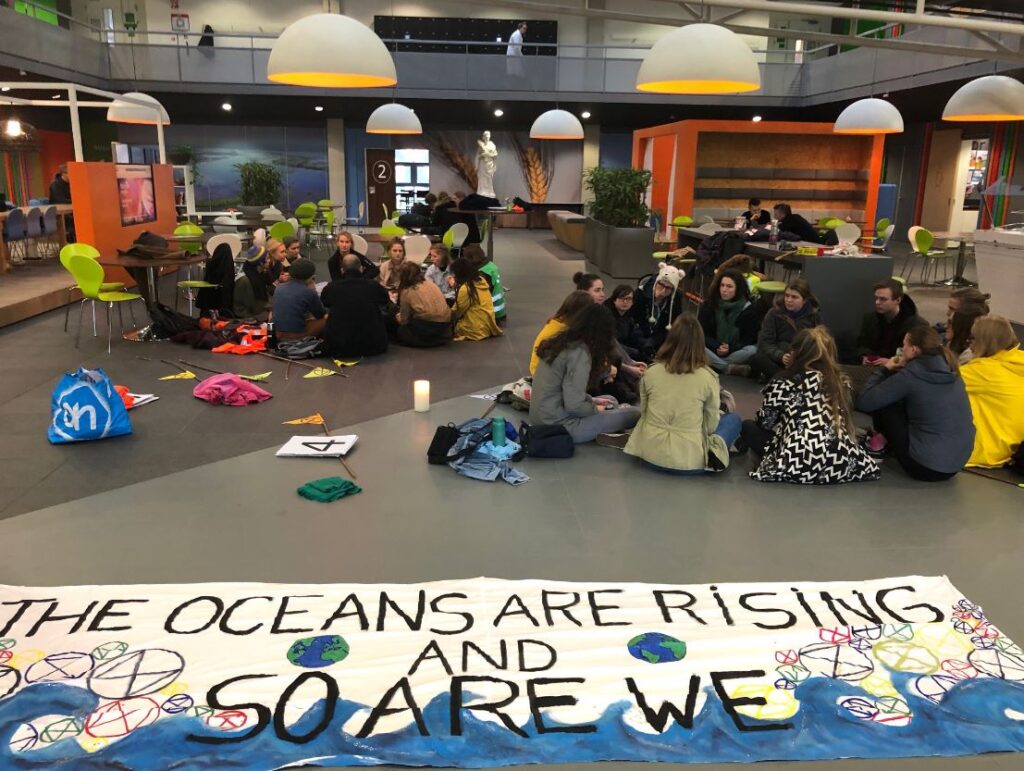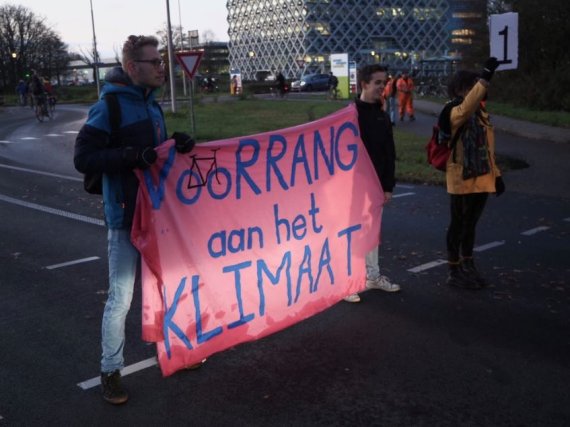About fifty students caused a traffic jam on the Mansholtlaan this morning by cycling around the roundabout at the entrance to WUR. The members of the Extinction Rebellion Wageningen protest group want WUR to declare a climate crisis.
The protest started at a quarter to eight, during rush hour, and took place without significant incidents under guidance of the police. An hour later, about fifty participants walked to the Atlas building with their bikes and banners to evaluate how the protest had gone. Among them was Joep Gevaert (23), who is following a pre-Master to enter the International Land & Water Management master’s programme. ‘It went rather well. We didn’t want to organise this without permission from the municipality, and we did eventually receive it. On the condition that we were not allowed to be on the roundabout more than twice for three minutes, as more would become illegal.’
They eventually did three rounds of five minutes. ‘At that point, we had to stop, as the police would get reinforcement otherwise. A pity, but we were able to state our message: the university, just like the EU and many cities including Groningen, Amsterdam and Utrecht, must declare the climate crisis. Science is clear: we are facing a huge, unprecedented crisis. The extinction of animals is just as great as during the Permian–Triassic, when the dinosaurs went extinct. WUR must acknowledge that it is a crisis. Also: WUR claims that it is very green, but in our opinion, not sufficiently. Today, we also called the prevention of the arrival of the campus route along the Noordwest and Dassenbos districts to attention. So far, the university has remained formally quiet, and we want to start discussions.’
Those discussions will be initiated in January, said spokesperson Simon Vink, who spoke to the delegation in Atlas after the strike: ‘In Impuls, with Rector Magnificus Arthur Mol. We want to enter discussions regarding the questions that Extinction Rebellion is raising: what added value would it have for WUR to declare the climate crisis like the EU has, and what message would that convey exactly? Every day, we and hundreds of employees work on climate issues, but also on other topics such as biodiversity, circularity and how we can continue feeding the world . Our employees daily investigate which urgent issues we are facing, where they come from and how to solve them. In Impuls, we can also talk about how green we actually are and how that can be improved according to the students.’


 “Give priority to the climage” Photo: Extinction Rebellion Wageningen
“Give priority to the climage” Photo: Extinction Rebellion Wageningen